Thousands of Kenyans continue to seek better opportunities abroad, driven by the hope of improving their livelihoods and supporting families back home. However, many face exploitation by rogue recruitment agencies that promise jobs overseas but fail to deliver. Some victims never travel after paying hefty fees, while others who do find themselves trapped in harsh working conditions, abuse, and neglect by employers, while in the diaspora.
The plight of Kenyans working abroad has raised growing concern over fraudulent overseas job schemes and the welfare of migrant workers. In response, the government has initiated a series of robust interventions to protect citizens seeking employment beyond its borders and to safeguard those already working abroad.
To better serve Kenyans at home and abroad, the State Department for Diaspora Affairs (SDDA) was established in 2022 through a presidential directive to address issues that concern the country’s diaspora community.
Operating under the Ministry of Foreign and Diaspora Affairs, SDDA’s mandate, drawn from Executive Order No. 1 of 2023, is to engage the Kenyan diaspora constructively, inclusively, and productively to unlock their full potential for national development.
The State Department offers a range of services and information, including emergency contacts, overseas job listings (“Kazi Majuu”), the Diaspora Information Management System (DIMS), support for migrant workers, and programs connecting Kenyans at home with those abroad.
DIMS is a system designed to manage information related to diaspora communities to better understand, engage with, and support Kenyan communities worldwide.
Contributions by the Kenyan diaspora
In June 2025, President William Ruto highlighted the significant economic contribution of the Kenyan diaspora during an address at State House, Nairobi. He noted that remittances from Kenyans abroad totaled a record $4.95 billion (Ksh638 billion) in 2024, surpassing earnings from tea, tourism, and coffee combined. These funds are critical for supporting families, boosting investment, and strengthening Kenya’s foreign reserves.
Also Read: Inside Push by Kenyans in Diaspora to Change Law Categorizing Them as Foreigners
The Head of State also revealed that the Labour Mobility Programme has facilitated employment for nearly 400,000 Kenyans overseas in the past two years, with comprehensive records tracking their locations, jobs, and earnings.
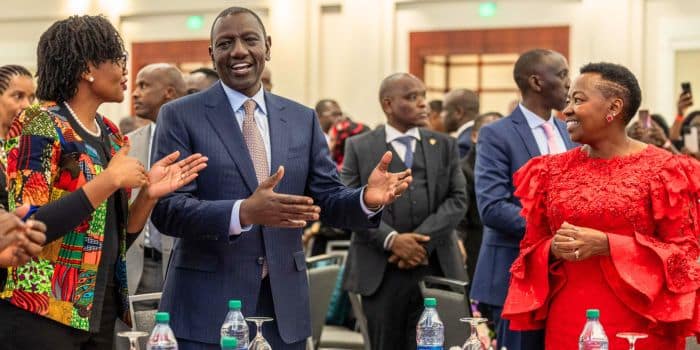
To further protect job seekers, the government has deregistered 1,000 fraudulent recruitment agencies. President Ruto urged Kenyans living abroad to act as positive ambassadors and brand champions for the nation.
Despite these efforts, concerns remain over the welfare and safety of Kenyans working abroad. A recent Kenya National Bureau of Statistics (KNBS) report shows that deaths of Kenyans outside the country rose from 270 in 2023 to 305 in 2024 — a 13% increase. The majority of these fatalities occurred in the United States (71), India (50), and Uganda (22), with significant numbers also recorded in the UK, Tanzania, Saudi Arabia, South Africa, UAE, Qatar, and Canada.
Further, Cabinet Secretary for Foreign and Diaspora Affairs Musalia Mudavadi revealed before the Senate that since 2022, at least 316 Kenyans have died working in Gulf countries alone. Saudi Arabia accounted for 166 deaths, followed by Qatar (58) and the UAE (51). Approximately 416,548 Kenyans currently work in the Gulf region, with Saudi Arabia hosting the largest number (310,266).
Mudavadi acknowledged the challenges in maintaining accurate records due to high mobility and low embassy registration among Kenyans abroad. Nonetheless, the government is under pressure from civil society and diaspora groups to enhance monitoring, protection, and welfare services.
Interventions taken by Govt to make it safer for Kenyans working abroad
In July 2025, Labour and Social Protection Cabinet Secretary Alfred Mutua announced the launch of a multi-agency task force to investigate and prosecute individuals and agencies involved in fraudulent recruitment scams.
The task force was formed following a high-level meeting at the NSSF Building, bringing together officials from the Ministry of Labour, Attorney General’s Office, Directorate of Criminal Investigations (DCI), Office of the Director of Public Prosecutions (ODPP), Asset Recovery Agency, Financial Reporting Centre (FRC), Directorate of Immigration, State Department for Diaspora Affairs, and other relevant agencies.
CS Mutua described the fraudulent recruitment networks as a “growing criminal enterprise” undermining Kenya’s efforts to expand safe and legal labour migration.

He highlighted the rise of impostors posing as licensed agents who defraud Kenyans with false job promises, often disappearing with their money and leaving victims devastated.
Also Read: Kenya’s Diaspora Remittances Hit Ksh54 Billion in June 2025
To streamline justice for victims, the task force operates from a centralized One-Stop Centre at the NSSF Building, Block C, 7th Floor, open daily from 9 a.m. to 1 p.m. Victims can report cases, submit evidence, and seek redress in one place, reducing bureaucratic delays that previously hindered swift prosecution.
Mutua emphasized cooperation between the DCI and DPP to fast-track cases and ensure offenders face the full force of the law. The government is also engaging the Judiciary to explore expedited handling of labour fraud cases.
“We will not allow individuals to hide behind company names. Those responsible, whether directors, brokers, or collaborators, will be held personally accountable,” Mutua declared.
He urged victims who have paid for jobs that never materialized to come forward with proof of payment and communications at the One-Stop Centre.
Crackdown
Earlier, in May 2025, Principal Secretary Shadrack Mwadime of the State Department for Labour and Skills Development reiterated the government’s commitment to reforming the foreign recruitment sector. Speaking at a ceremony for 24 divers trained at the Bandari Maritime Academy, Mwadime acknowledged widespread concerns about fake agencies exploiting young job seekers.
“The government has a duty to bring order to this space,” he said, urging job seekers to verify agency credentials on the National Employment Authority (NEA) website before parting with money.
Agencies flagged in red are fraudulent and should be avoided, while only those marked in black are approved.
Mwadime also revealed government efforts to deregister fraudulent recruiters and compensate victims, assuring that culprits would face legal consequences. He clarified that the government does not directly place Kenyans in overseas jobs but regulates and monitors private recruitment agencies.
Responding to calls from civil society and reports such as Amnesty International’s “Locked In, Left Out,” which documents abuses faced by Kenyan domestic workers in Saudi Arabia, the government has committed to upholding ethical recruitment, fair wages, safe working conditions, non-discrimination, and access to justice for Kenyan migrant workers.
In a move to expand opportunities in the maritime sector, the State Department of Shipping and Maritime Affairs is collaborating with the Directorate of Immigration to streamline the issuance of Seafarer’s Identification Documents (SID), crucial for international maritime employment. Mwadime assured that positive changes are underway, with seafarers soon to receive their IDs efficiently.
Follow our WhatsApp Channel and X Account for real-time news updates.
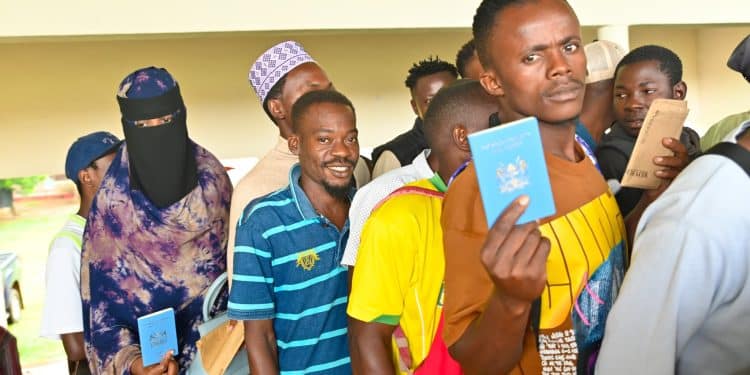


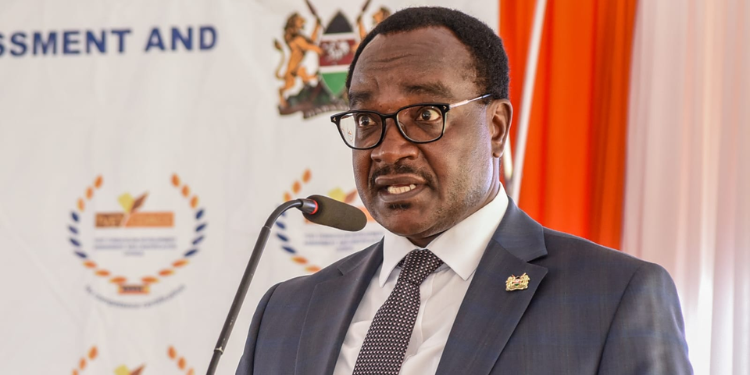



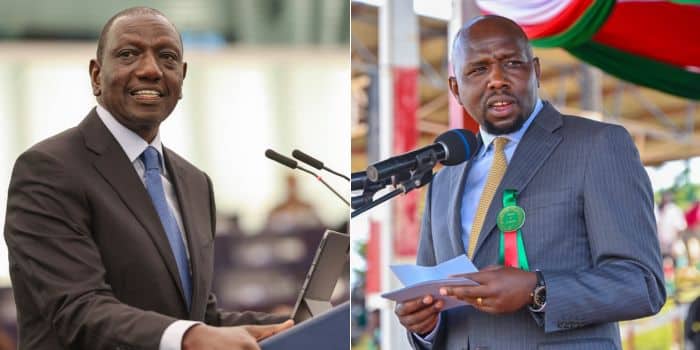
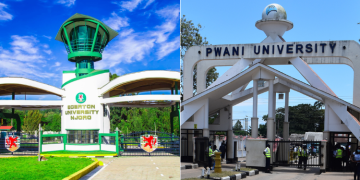
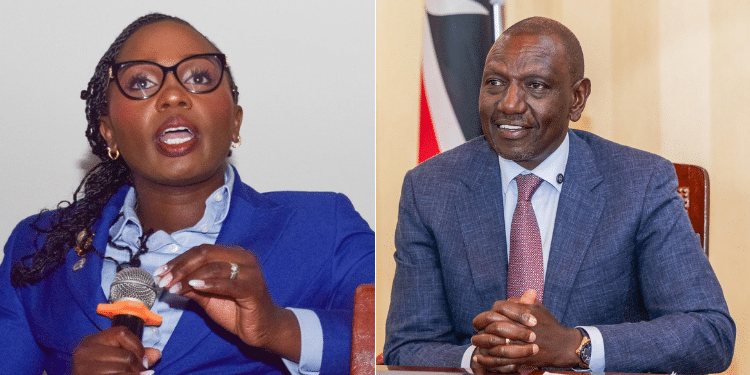







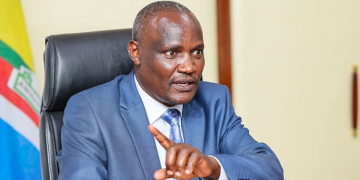
































![Senator Allan Chesang And Chanelle Kittony Wed In A Colourful Ceremony [Photos] Trans Nzoia Senator Allan Chesang With Channelle Kittony/Oscar Sudi]( https://thekenyatimescdn-ese7d3e7ghdnbfa9.z01.azurefd.net/prodimages/uploads/2025/11/Trans-Nzoia-Senator-Allan-Chesang-with-Channelle-KittonyOscar-Sudi-360x180.png)






















